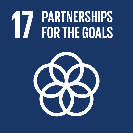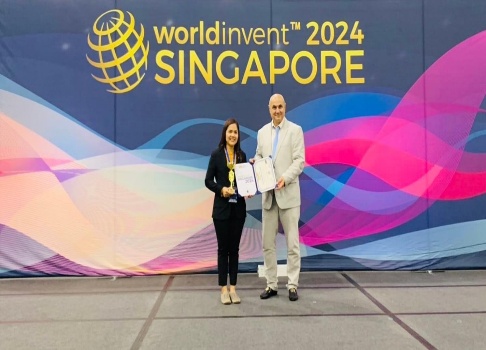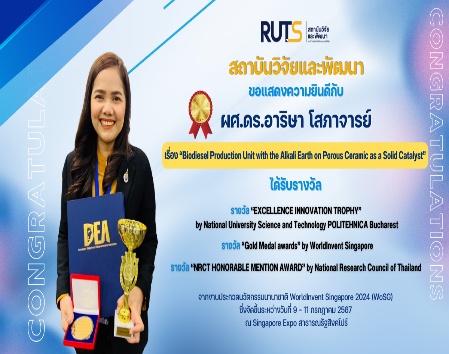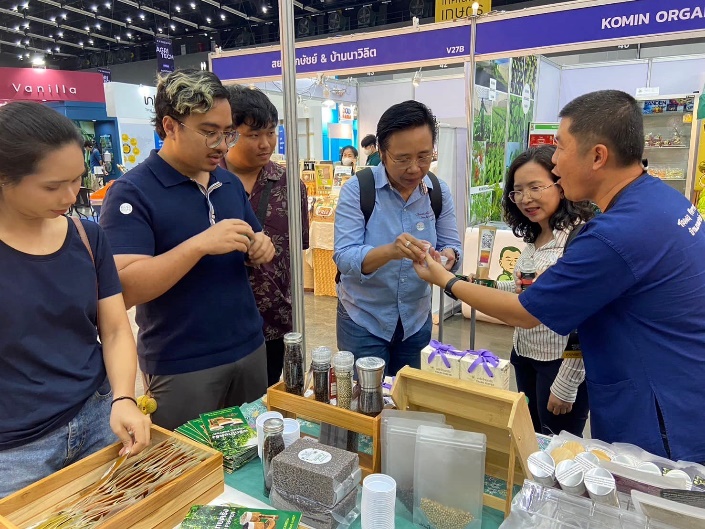Reporter: Dr Lamun Kayurin
Evidence date: 9th -11th July 2024
Related to: 
Indicator relate to: 17.1.1, 17.1.2
In 2024, Rajamangala University of Technology Srivijaya (RUTS) in Thailand collaborated with Universities Partnership for the goals of sustainable development around research relating to SDG 1 to 17. For instance, RUTS researcher including Asst. Prof. Dr. Arisa Sopachary did participate in the WorldInvent Singapore 2024 (WoSG). An International invention and innovation competition held from July 9-11, 2024 at the Singapore Expo, Republic of Singapore. The innovation “Biodiesel Production Unit with the Alkali Earth on Porous Ceramic as a Solid Catalyst” developed by Asst. Prof. Dr. Arisa Sopacharn and her research team from Rajamangala University of Technology Srivijaya (RUTS) represents a major advancement in sustainable biofuel production technology. This project focuses on designing a modular biodiesel production unit that employs a solid catalyst system using alkaline earth metals embedded in a porous ceramic structure. Unlike traditional liquid (homogeneous) catalysts, the solid catalyst is reusable, reduces chemical waste, minimizes purification costs, and enhances reaction efficiency. The system converts vegetable oils and other renewable feedstocks into biodiesel through an optimized transesterification process. The innovation provides a scalable model that supports small and medium enterprises (SMEs) and local communities in producing clean, renewable energy at lower cost while maintaining environmental compliance. The project did receive the Gold Medal Award at WorldInvent Singapore 2024, alongside the Excellence Innovation Trophy from the Politehnica University of Bucharest and the NRCT Honourable Mention Award from the National Research Council of Thailand (NRCT) — underscoring its international and national impact. In conclusion, the system offers practical benefits: enabling cost-effective, decentralized biodiesel production for SMEs and community initiatives, reducing carbon emissions, and supporting Thailand’s low-carbon energy transition. The research aligns closely with SDG 7 (Clean Energy) and SDG 12 (Responsible Consumption and Production), illustrating how university-driven innovation can create tangible environmental, economic, and social impact. Overall, this project exemplifies RUTS’s role in transforming academic research into real-world sustainable solutions.






